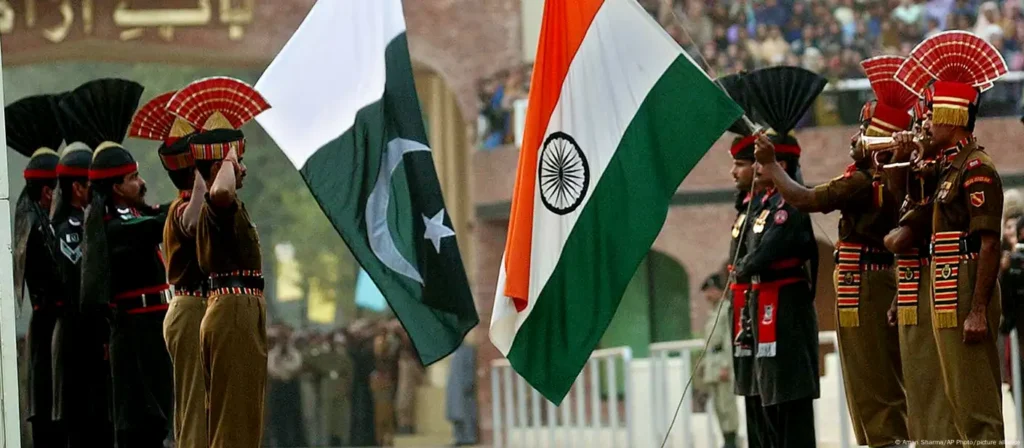A ceasefire between India and Pakistan remained in place overnight into Sunday, despite fresh accusations from both sides of breaching the agreement just hours after it was brokered by the United States.
The truce followed several days of intense cross-border military exchanges, marking the most severe conflict between the two nuclear-armed neighbors in decades. The US-brokered deal came after India launched airstrikes in Pakistan and Pakistan-administered Kashmir in retaliation for a deadly militant attack in Pahalgam last month, which Islamabad has denied involvement in.
US President Donald Trump praised the ceasefire on Sunday morning, stating that the agreement potentially prevented the loss of millions of lives. Trump announced the “full and immediate” ceasefire on his Truth Social platform on Saturday and emphasized the role of the United States in brokering the deal.
Pakistan’s Foreign Minister acknowledged the agreement, attributing it to the diplomatic efforts of more than 30 countries. However, within hours, explosions were reported in Srinagar and Jammu—major cities in Indian-administered Kashmir—raising concerns about the ceasefire’s durability. Eyewitnesses and journalists described flashes of light and loud blasts in the area.
India’s Foreign Secretary Misri accused Pakistan of “repeated violations” and asserted that Indian forces would respond appropriately. Conversely, Pakistan’s Ministry of Foreign Affairs reaffirmed its commitment to the truce while urging Indian forces to observe restraint.
The disputed region of Kashmir—claimed entirely by both nations but split in control since the 1947 partition—remains a major source of friction, having triggered two wars between the countries.
India’s External Affairs Minister S. Jaishankar confirmed the ceasefire agreement and reiterated India’s tough stance against terrorism, stating that the country will continue to act decisively against all forms of extremist violence.
In a national address, Pakistan’s Prime Minister Shehbaz Sharif called the ceasefire a step taken “for the benefit of everybody.” Meanwhile, US Secretary of State Marco Rubio announced that both nations agreed to open discussions on broader issues at a neutral venue. Rubio, along with Vice President JD Vance, engaged in two days of talks with Indian Prime Minister Narendra Modi and Pakistani Prime Minister Shehbaz Sharif to finalize the deal.
Trump later praised the two leaders for choosing peace and thanked them for recognizing the need to end the hostilities. UN Secretary-General António Guterres welcomed the truce and all efforts aimed at de-escalation.
UK Prime Minister Sir Keir Starmer noted that the UK had played a behind-the-scenes role in the negotiations, with Foreign Secretary David Lammy in contact with both sides. “The challenge now is to ensure the ceasefire is lasting and stable,” Starmer said.
The recent flare-up was sparked by a militant attack on April 22 in Pahalgam, Indian-administered Kashmir, which left 26 tourists dead—25 Indians and one Nepali. Survivors reported that the attackers specifically targeted Hindu men. India’s Defense Ministry said its retaliatory strikes aimed to hold the perpetrators accountable, while Pakistan labeled them “unprovoked aggression.”
According to official sources, Indian airstrikes and artillery fire have killed 36 people in Pakistan and Pakistan-administered Kashmir since Wednesday. In return, India reported 21 civilian deaths from Pakistani shelling. By Friday night, the situation had escalated with both sides accusing each other of targeting military sites and airbases.

